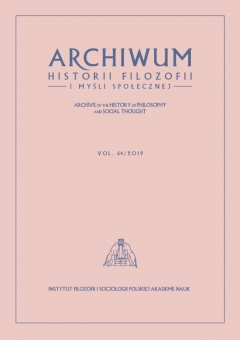The Concept of Aristoxenos’ Harmonic Science
Anna Maria Laskowska
Aristoxenus of Tarentum in his treatise Elementa harmonica created his own philosophical system in the field of sound research, which differed from the concept of harmonics proposed by the Pythagoreans. The fundamental difference concerned primarily the methodology of research. Aristoxenus considered the careful observation of acoustic phenomena as the starting point for all research, and thus as a fundamental criterion of truth. According to him, only perception could verify the state of things as being consistent with reality. The neglect of the hearing testimony, as was the case with Pythagoreans, was unacceptable to Aristoxenos, and he considered it to be a significant methodological error. The harmonikos had to be an attentive observer of acoustic phenomena, with additionally trained musical ear.
DOI: 10.37240/AHFiMS.2019.64.3
 | 64-laskowska |
Keywords: Aristoxenus · harmonics · harmony · melos · sound · hearing · Pythagoreans
The journal founded by Leszek Kołakowski, Bronisław Baczko and Jan Garewicz appears continuously since 1957.







